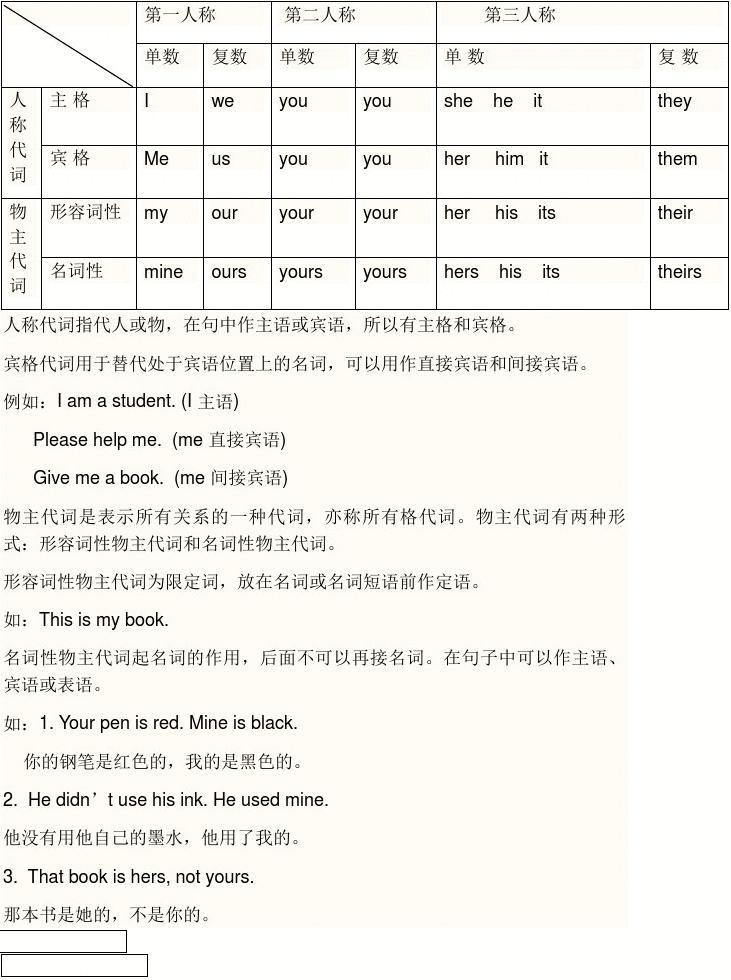基本介紹
- 中文名:直接賓語
- 性質:謂語動詞的承受者
- 相對者:間接賓語
- 所屬學科:英語

直接賓語是謂語動詞的承受者,間接賓語表示謂語動作的方向(對誰做)或動作的目標(為誰做),間接賓語緊接在謂語動詞後,但它不能單獨存在。...
句子中有兩個賓語時,其中指物或指事的就是直接賓語。指人(或動物)的就是間接賓語。間接賓語指受影響的事或人,直接賓語為動作的承受者,如He passes me the ...
賓語,又稱受詞,是指一個動作(動詞)的接受者。賓語分為直接賓語和間接賓語兩大類,其中直接賓語指動作的直接對象,間接賓語說明動作的非直接,但受動作影響的對象。...
主謂賓,一種文法的表達方式。語法順序為為主語—謂語—賓語的結構。雖然使用主謂賓結構的語言在事實上沒有使用主、賓、謂結構的。但是語言種類多,且許多克里奧爾語...
動詞之後先後出現近賓語、遠賓語兩層賓語的句子叫雙賓句。近賓語一般指人,回答謂語“誰”的問題;遠賓語一般指物,回答謂語“什麼”的問題。...
賓格(accusative case;objective case;casus accusativus),表示一個動詞直接賓語的名詞或一個前置詞的賓語。人稱代詞里的:主格放在句首做主語和表語,賓格放在句末或...
有些及物動詞可以有兩個賓語,其中一個賓語多指人,另一個賓語指物,指人的賓語叫做間接賓語,指物的賓語叫做直接賓語,可以帶兩個賓語的動詞有 bring,give,show,...
(3) 主語+謂語(及物動詞)+賓語 (4) 主語+謂語(及物動詞)+間接賓語+直接賓語 (5) 主語+謂語(及物動詞)v.+賓語+賓語補足語 舉例 如: She became a do...
這種句型可稱為主謂賓賓結構,其謂語應是可有雙賓語的及物動詞,兩個賓語一個是間接賓語,一個是直接賓語,其中指物或指事的就是直接賓語 指人(或動物)的就是...
